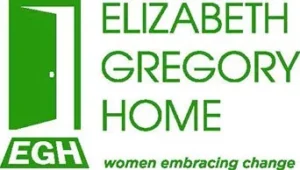Health Navigator to Improve Access to Health Services for Women Experiencing Homelessness

Grantee: Elizabeth Gregory Home
Timeframe: July 2023 – June 2025 | Amount: $209,305.90
- Year 1: July 2023 – June 2024. Amount: $99,870.40
- Year 2: July 2024 – June 2025. Amount: $109,435.50
Elizabeth Gregory Home (EGH) partners with women experiencing homelessness, economic insecurity, or trauma as they move to stability. The women EGH serves have high rates of health concerns: 41% of their clients report at least one physical disability, 53% manage mental health challenges, and 26% have both. This is likely undercounting, as nationwide, women experiencing homelessness report an average of 3.5 health problems each and women in unsheltered homelessness have significantly more health concerns than women living in shelters. Health and behavioral health issues can be both a cause of homelessness and a result of a person’s experiences facing homelessness. Managing a mental or physical illness can make it more challenging to hold a job or maintain stable housing and sometimes results in medical debt, which can lead to homelessness.
PHPDA previously supported EGH’s pilot program for behavioral health services based at EGH’s Day Center through a Nimble Grant and that program has highlighted the importance of personalized support for women that reduces inequities by offering access to an onsite mental health counselor. This proposal addresses a similar problem, but for physical and mental health. EGH has launched a Health Navigation program that has created a new position providing health concierge services – helping women sign up for insurance, arrange transportation to appointments, find providers for needed health services, and reminders to fill prescriptions and take needed medications. This focus on physical and mental health will complement their onsite behavioral health care, which EGH will continue with other funding if the pilot is successful.
With a new full-time Health Navigator to provide health education and support connections to health services and resources, EGH will improve health outcomes and access for underserved communities of women experiencing homelessness in King County. Personalized, on-site support to manage health conditions will reduce these barriers and increase equity. Through 1:1 case management appointments at EGH’s Day Center, the Health Navigator will help women access the health care and support they need to improve health outcomes. They will follow up on the visits EGH already facilitates with UW nursing and dental program volunteers to ensure recommendations are followed. EGH will improve access to preventative health education through classes on topics such as managing anxiety, staying safe in the cold, or breast self-exams. It will also build on the encouraging and supportive community EGH has facilitated, which helps women of color, transgender women, or women from other marginalized communities feel safer and more comfortable as they access this support. Women of color face provider bias and high rates of poor health, so support for health concerns from a location where women already visit and where they have rapport and trust with their staff can create a more equitable, accessible pathway for marginalized women who otherwise face barriers to meeting health care needs.
EGH’s Health Navigator program will increase their supportive health services, improving access to the resources – like insurance, transportation, or seeking out appropriate providers – that contribute to better health management. Short-term, this will reduce barriers to health access. Long-term, this will improve health outcomes.
Throughout the project, EGH will ask participants about their experience and solicit feedback on how the health concierge services can be tailored for their individual needs to make real-time adjustments.
EGH will meet the varied needs of their clients by providing education in multiple languages and in culturally-specific ways for transgender, LGBTQ+, and BIPOC women.
ABOUT OUR GRANTEE
Elizabeth Gregory Home
The mission of EGH is to provide a welcoming and respectful refuge where women (including transgender women) who experience homelessness, economic insecurity, and trauma have access to a caring community and critical resources.